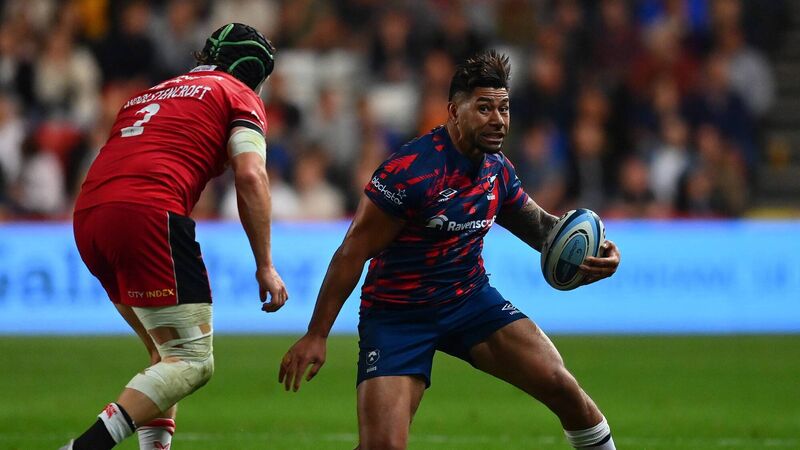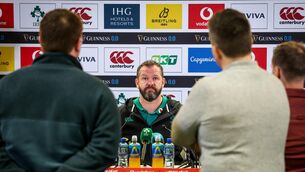Donal Lenihan: Eligibility rule change could transform rugby — but be bad news for Ireland

GOOD RECRUIT: Bristol’s Charles Piutau takes on Tom Woolstencroft of Saracens during the Gallagher Premiership match at Ashton Gate. Former Ulster star Piutau is one of several former All Blacks set to boost Tonga’s ranks ahead of the 2023 World Cup in France.
What an eventful week that proved to be. I had originally intended to focus on the impact of the South African sides playing at home in the URC for the first time but as we know by now, Omicron, the latest variant of the coronavirus, put paid to that.













